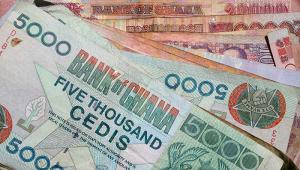Speaking after review of the country’s performance under a three-year IMF budget support programme, the completion of which also enables the disbursement of a further $114.6m for Ghana, the fund’s executive board said that while implementation of the programme is “broadly satisfactory” there is still some way to go.
“In this regard, it is essential that the government sticks firmly to its policy of strict expenditure controls, by maintaining the wage bill within the budget limits, while controlling discretionary spending and protecting priority spending,” Min Zhu, acting chair and deputy managing director of the IMF’s executive board said.
“The 2016 budget rightly aims at a stronger consolidation than originally envisaged” as government debt continues to increase, he added. The government had planned to bring the fiscal deficit down by 5.8%, but now it will aim for 5.3%.
The budget also forecasts some extra one-off costs this year related to elections and a nominal wage bill increase that the IMF said in November is expected to be slightly higher than envisaged under the programme.
Zhu said effective implementation of a wide range of ambitious reforms, including measures to broaden the tax base and enhance tax compliance, strengthen control of the wage bill and enhance public financial management, will be necessary to ensuring gains from fiscal consolidation are sustained.
Ghana has taken steps to address payroll irregularities and strengthen PFM. In November it received a $56.2m loan from the African Development Bank for PFM reform.
Several state-owned enterprises in the utilities sector have also fallen on financial hardship and this calls for “strong actions to avoid additional pressures on the budget”, Zhu said
But he also welcomed gains made in electricity production capacity, the government’s commitment to implementing corrective measures in the face of fiscal risks and a new medium-term debt management strategy to help reduce these risks.
Ghana is already selling its debt internationally. Its latest $1bn Eurobond, its fourth to date, was issued in October with a $400m guarantee from the World Bank. The guarantee stipulates that Ghana use the proceeds of the bonds to refinance its existing debts, in particular a 2007 Eurobond set to mature in 2017.
Over the past few years external shocks such as the drop in commodity prices have exacted a heavy toll on Ghana’s economy, which used to be amongst the strongest on the African continent.
As well as high public debt, which stood at 60.8% of gross domestic product in 2014, high inflation also remains a challenge.
Zhu said that Ghana’s central bank should stand ready to further tighten monetary policy if inflationary pressures do not recede as expected.
He added that the Bank of Ghana’s commitment to gradually deepen the foreign exchange market will also be helpful, and noted that financial sector stability should be monitored closely in the context of deteriorating asset quality.
The release of this latest tranche of funds following the successful review of Ghana’s performance brings total disbursements under the arrangement to about $343.7m. The total funds to be released under the programme, which was approved in April last year, is $918m.












